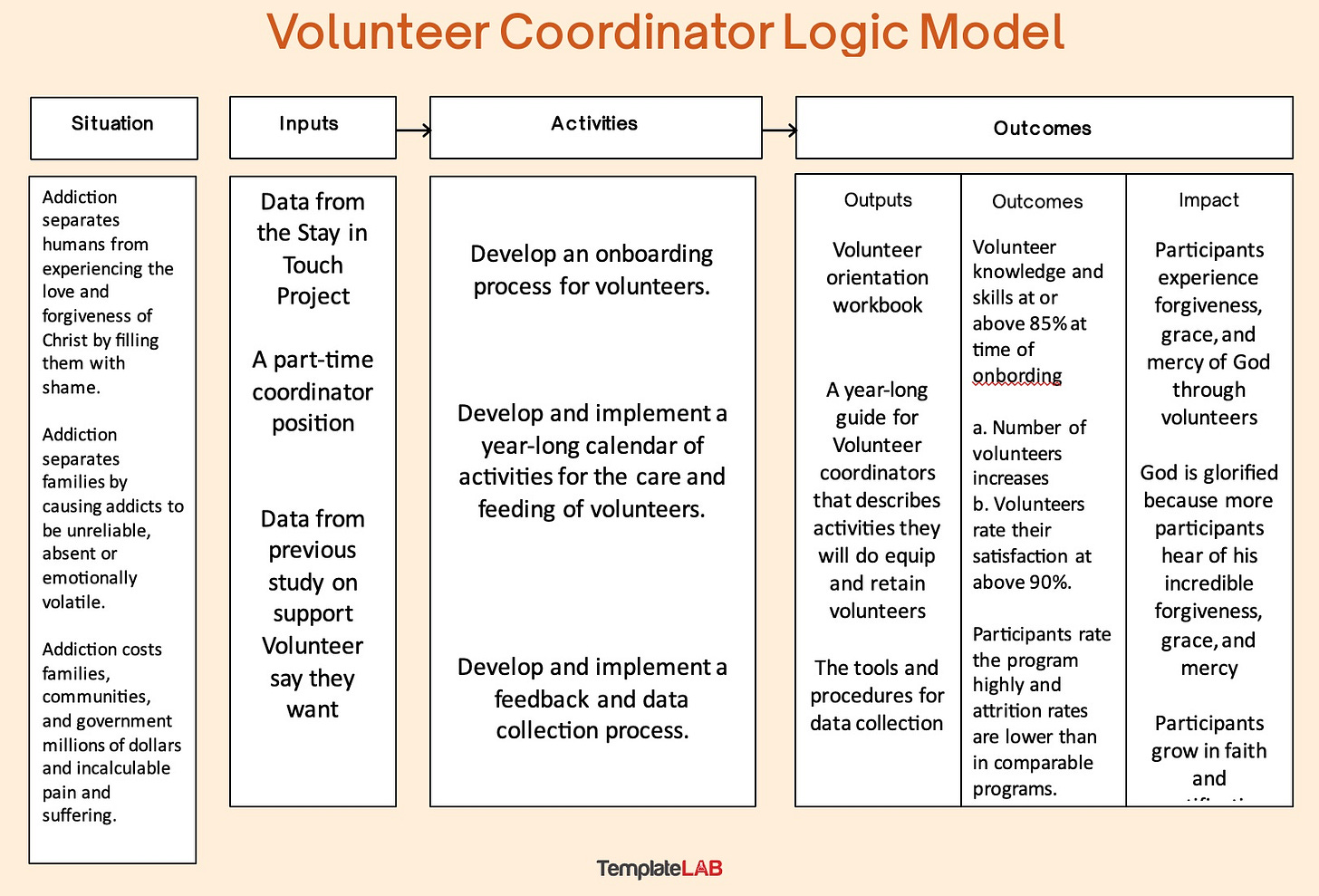Why We Need a Volunteer Coordinator
A behind-scenes look at our plans
One of the purposes of this substack is to get my ideas out of my head and down on “paper.” In this way, my substack serves as a journal of sorts, documenting my changing thinking about addiction and culture and creating an archive of Resilient’s history.
Not everyone is interested in a post about the ministry. So feel free to scroll away. However, this behind-the-scenes access to Resilient Recovery is interesting for some of you.
Our Problem
When I left my job five years ago as a Regional Director of a non-profit to launch Resilient Recovery, I was the ministry equivalent of a solopreneur. There wasn’t an aspect of Resilient Recovery that wasn’t under my purview. I wrote the workbook, conducted the Bible studies, made the website, publicized the meetings, put out the signs, designed the logo, trained, did grant writing and fundraising, and ordered t-shirts—you name it, I did it.
And for a long time, things stayed that way.
Resilient Recovery Ministries was a lot like this drum battle, and I was both Animal and Buddy Rich.
OK. That’s a little more frenetic than things actually were.
By God’s grace, others joined the crew—and we now have enough volunteers to make wrangling them a part-time job. We need a Volunteer Coordinator. By not having a Volunteer Coordinator, we are starting to run into some challenges.
Challenge One
We lack unity and cohesion. Each volunteer is the captain of their meeting; they facilitate and perform well individually but lack a strong sense of shared identity and culture. We want to build the kind of unity and cohesion that gives volunteers motivation, belonging, and purpose.
Challenge Two
Volunteers lack support and guidance. In a recent survey of volunteers, they specifically asked for help with:
Help to publicize the program and find and retain attendees
Learning and training on recovery to improve my ability to serve
Help to get buy-in from your home church
Peer mentorship
Theological training.
Unfortunately, we do not have the staff or bandwidth to meet these challenges. Thus, our current growth and depth of impact as a recovery ministry are limited by our inability to properly coordinate, equip, and retain volunteers.
Challenge Three
Some churches and individuals have expressed interest in Resilient Recovery Ministries but haven’t started a group. I am not able to keep track of them and follow up when necessary. Someone needs to nurture these “leads” and provide them with updates and encouragement.
A Potential Solution.
A volunteer coordinator can develop an onboarding and volunteer management system that will go a long way toward making Resilient a more unified, cohesive, and effective ministry.
Here is the logic model
As you can see in the logic model, the main activities will result in three important outputs.
A manualized volunteer onboarding process. No more, “You wanna help? Sure. Come along with me for a few meetings until you get your sea legs.” We’ll have the essential knowledge and practices in a handy manual. Imagine our volunteers with the consistency and professionalism of a Chic Fil A employee.
A year-long volunteer guide. This calendar will set forth the Volunteer Coordinator's activities to promote cohesion and unity.
A feedback and data collection process. At the most basic, I’d love to know what lessons people used this week, how many participants attended, and a few words about how it went. This information can be used to inform continuous quality improvement.
I’m looking forward to hiring this person and seeing how it impacts our ministry.
You can be a part of hiring and equipping our volunteer coordinator. Considering contributing to our Year of Generosity campaign


